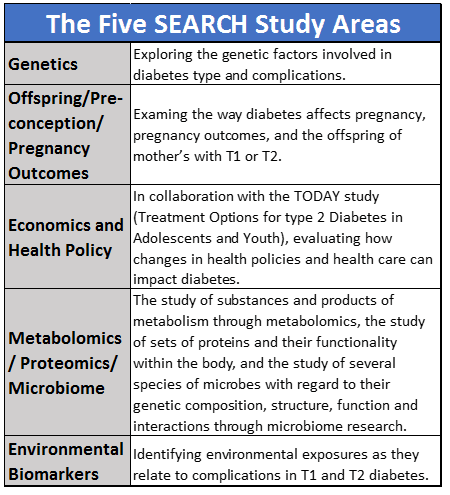
This is the fourth in a series of reports on the top five largest T1D research centers in the U.S. It features a profile of Wake Forest School of Medicine (WFSM). In addition to an overview of the organization itself, these reports also examine the current research initiatives and spending at the university.
The main takeaway from this report is that WFSM had the second largest T1D research budget of any U.S. university (Click here to view the top 20 research centers). In 2015, the most recent year this data was available, WFSM's total budget was $20.4 million, 72% of which was received through a single NIH grant for the SEARCH for Diabetes in Youth study, described in detail below.
History and Overview
The Wake Forest School of Medicine was established in 1902 and the Center for Diabetes, Obesity and Metabolism was established within the School of Medicine in 2006.
WFSM houses a data coordinating center focused on the prevention and treatment of both T1 and T2 diabetes and it's complications. The Data Coordinating Center is led by Dr. Ralph D’Agostino Jr and Dr. Lynne E Wagenknecht who are also the primary investigators for the SEARCH study.
“WFSM is the lead (of the SEARCH study) because we’re a data coordinating center,” Dr. Wagenknecht says, “scientifically we have a significant role doing the statistical analysis of the data and in the management of a large amount of data in a multi-center group.”
T1D Research
The WFSM Diabetes Center research includes the investigation of genetic contributors to diabetes, complications, prevention, and treatment for both T1 and T2.
Key Research Grant Takeaways:
- In 2015, Wake Forest received 13 NIH diabetes-related research grants and 0 JDRF research grants.
- $14 million was awarded to WFSM from the NIH for the SEARCH for Diabetes in Youth Cohort Study, making up 72% of Wake Forest’s budget.
- The other 12 grants were allocated to research focusing on complications, prevention, treatment, genetics, and incidence for T1, T2, and pre-diabetes.
- WFSM currently has 4 active diabetes-related human clinical trials, all of which are T2 focused.
SEARCH for Diabetes in Youth Cohort Study
The SEARCH study is a multi-center study with the overarching goal of creating a national registry of children aged 20 and under to examine diabetes (T1 and T2) prevalence, annual incidence, and trends by age, ethnicity, sex, as well as diabetes type. SEARCH is also examining the natural history and risk factors for diabetes-related complications as well as the quality of care and quality of life of persons with diabetes from diagnosis into young adulthood.
Wagenknecht quotes on the value of study, “SEARCH has multiple ethnic groups and a more representative population—the one unique thing about SEARCH is our very high-quality incidence data that has now been collected over a very long period.”
- WFSM is the lead data coordinating center and oversees five other SEARCH study centers.
- The study was initiated in 2000 and will continue until June 2020. All data will be made publically available once the study is completed.
- The SEARCH study has registered over 27,000 participants, from different racial/ethnic backgrounds, and follows a subset of these cases from the onset of diabetes into young adulthood.
- Dr. Wagenknecht notes, “Of those we registered between 2002 and 2012, 80% are T1 and 20% are T2 (14,091 were registered; 11,245 were T1 and 2,846 were T2).
- WFSM is currently not pursuing any Practical Cure Research of any kind.

